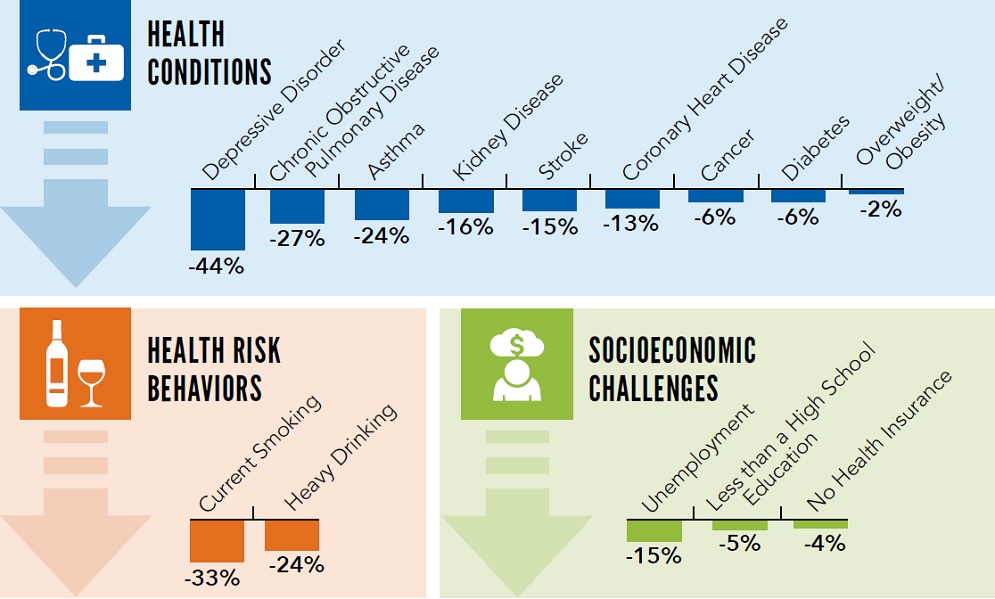Adverse Childhood Experiences, Depressive Disorder, and Substance Use Disorder
The cross-sectional study was conducted by Kim, Kim, Chartier, Wike, and McDonald in 2019. The study included people aged 18 and above from the non-institutionalized population from 50 U.S. states and the District of Columbia. To achieve reliable estimates of minority groups, the study allowed sample overrepresentation from the African Americans, Latinos, and Asian Americans. 11,386 older adults were included in the final study sample. The research design was cross-sectional, and the survey technique was utilized to collect data. The total response rate for the survey was 60.1%. The study hypothesis was stated as: There is a relationship between adverse childhood experience (ACEs) patterns and substance use disorder (SUD) in older adults, and major depressive disorder can be used to explain the relationship between ACEs and SUD. Therefore, the purpose of the study was to evaluate ACEs in a representative United States population-based sample, examine how the patterns of ACEs exposures are connected to major depressive disorder and SUD in older adults, and investigate if major depressive disorder can be used to explain the relationship between ACEs and SUD. The independent variable was the previous year’s measures of SUD diagnosis, while the indepent variables were the categories of ACEs. The previous year’s major depressive disorder was used as the mediating variable.
The researchers conducted a latent class analysis of the survey responses and classified ACEs into four categories: 69% of the participants were categorized into the Low Adversity category; 16% of the participants were categorized into the Child Abuse category; 8% of the participants were categorized into the Parental Substance Use category; 6% of the participants were categorized into the High Adversity category. SUD rates were substantially higher in the High Adversity, Child Abuse, and Parental Substance Use categories than in the Low Adversity category. When compared to the Low Adversity category, the High Adversity and Child Abuse categories had a higher likelihood of suffering from major depressive disorder. Furthermore, the study uncovered that major depressive disorder can be used to explain the relationship between adverse childhood experiences and substance used disorder for the High Adversity and Child Abuse categories. The research findings of this study relate to my career choice, which is Substance Abuse Counselor. Depression is prevalent in older adults with an addiction to drugs or alcohol because it triggers or intensifies loneliness, sorrow and despair, typically linked to depression. However, there is an increase in the number of preventive and therapeutic initiatives that are targeting the older adults with problematic substance abuse. In this demographic, increased screening, evaluation, and counselling for harmful alcohol and drug abuse should be implemented.







